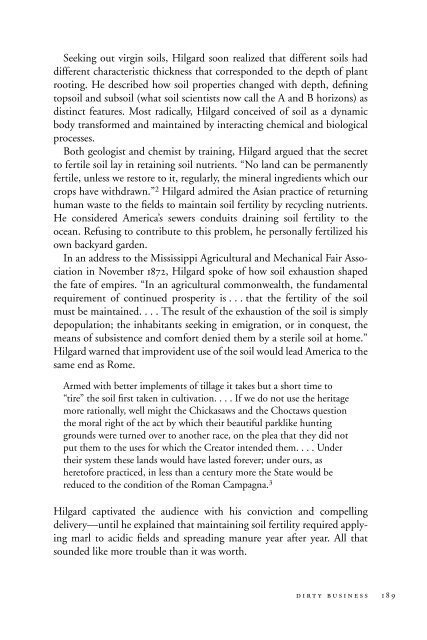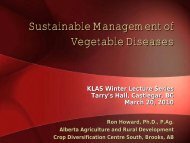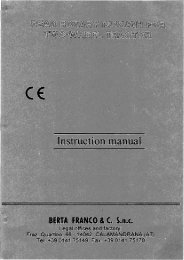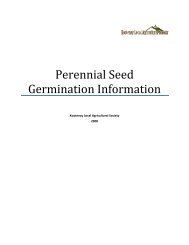Dirt: The Erosion of Civilizations - Kootenay Local Agricultural Society
Dirt: The Erosion of Civilizations - Kootenay Local Agricultural Society
Dirt: The Erosion of Civilizations - Kootenay Local Agricultural Society
Create successful ePaper yourself
Turn your PDF publications into a flip-book with our unique Google optimized e-Paper software.
Seeking out virgin soils, Hilgard soon realized that different soils had<br />
different characteristic thickness that corresponded to the depth <strong>of</strong> plant<br />
rooting. He described how soil properties changed with depth, defining<br />
topsoil and subsoil (what soil scientists now call the A and B horizons) as<br />
distinct features. Most radically, Hilgard conceived <strong>of</strong> soil as a dynamic<br />
body transformed and maintained by interacting chemical and biological<br />
processes.<br />
Both geologist and chemist by training, Hilgard argued that the secret<br />
to fertile soil lay in retaining soil nutrients. “No land can be permanently<br />
fertile, unless we restore to it, regularly, the mineral ingredients which our<br />
crops have withdrawn.” 2 Hilgard admired the Asian practice <strong>of</strong> returning<br />
human waste to the fields to maintain soil fertility by recycling nutrients.<br />
He considered America’s sewers conduits draining soil fertility to the<br />
ocean. Refusing to contribute to this problem, he personally fertilized his<br />
own backyard garden.<br />
In an address to the Mississippi <strong>Agricultural</strong> and Mechanical Fair Association<br />
in November 1872, Hilgard spoke <strong>of</strong> how soil exhaustion shaped<br />
the fate <strong>of</strong> empires. “In an agricultural commonwealth, the fundamental<br />
requirement <strong>of</strong> continued prosperity is ...that the fertility <strong>of</strong> the soil<br />
must be maintained. ...<strong>The</strong> result <strong>of</strong> the exhaustion <strong>of</strong> the soil is simply<br />
depopulation; the inhabitants seeking in emigration, or in conquest, the<br />
means <strong>of</strong> subsistence and comfort denied them by a sterile soil at home.”<br />
Hilgard warned that improvident use <strong>of</strong> the soil would lead America to the<br />
same end as Rome.<br />
Armed with better implements <strong>of</strong> tillage it takes but a short time to<br />
“tire” the soil first taken in cultivation. ...If we do not use the heritage<br />
more rationally, well might the Chickasaws and the Choctaws question<br />
the moral right <strong>of</strong> the act by which their beautiful parklike hunting<br />
grounds were turned over to another race, on the plea that they did not<br />
put them to the uses for which the Creator intended them. ...Under<br />
their system these lands would have lasted forever; under ours, as<br />
heret<strong>of</strong>ore practiced, in less than a century more the State would be<br />
reduced to the condition <strong>of</strong> the Roman Campagna. 3<br />
Hilgard captivated the audience with his conviction and compelling<br />
delivery—until he explained that maintaining soil fertility required applying<br />
marl to acidic fields and spreading manure year after year. All that<br />
sounded like more trouble than it was worth.<br />
dirty business 189






